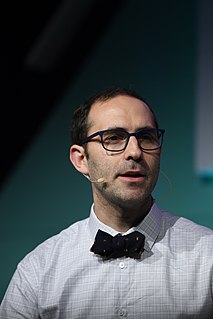A Quote by Eric Schmidt
People who bet against the Internet, who think that somehow this change is just a generational shift, miss that it is a fundamental reorganizing of the power of the end user. The Internet brings tremendous tools to the end user, and that end user is going to use them.



































